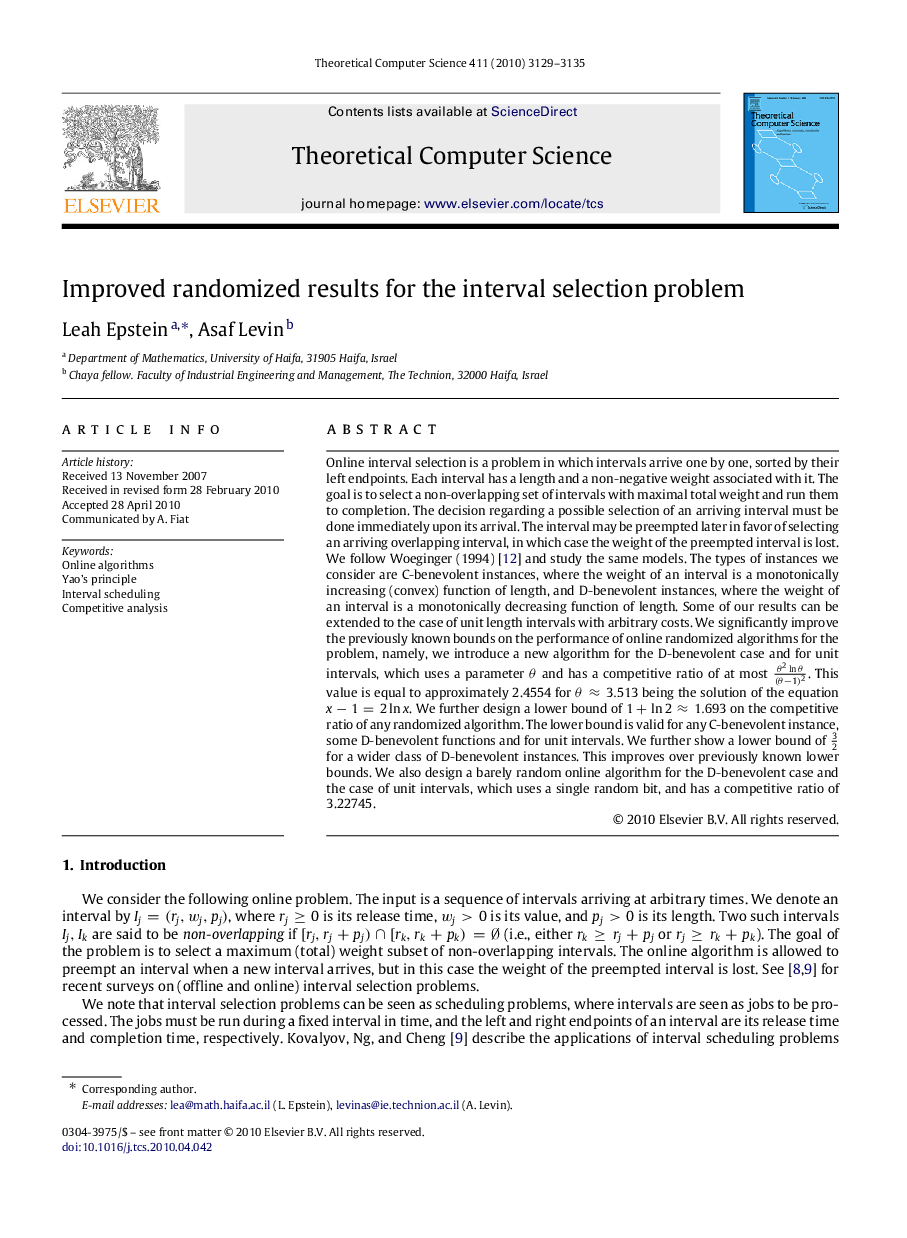| کد مقاله | کد نشریه | سال انتشار | مقاله انگلیسی | نسخه تمام متن |
|---|---|---|---|---|
| 439025 | 690413 | 2010 | 7 صفحه PDF | دانلود رایگان |

Online interval selection is a problem in which intervals arrive one by one, sorted by their left endpoints. Each interval has a length and a non-negative weight associated with it. The goal is to select a non-overlapping set of intervals with maximal total weight and run them to completion. The decision regarding a possible selection of an arriving interval must be done immediately upon its arrival. The interval may be preempted later in favor of selecting an arriving overlapping interval, in which case the weight of the preempted interval is lost. We follow Woeginger (1994) [12] and study the same models. The types of instances we consider are C-benevolent instances, where the weight of an interval is a monotonically increasing (convex) function of length, and D-benevolent instances, where the weight of an interval is a monotonically decreasing function of length. Some of our results can be extended to the case of unit length intervals with arbitrary costs. We significantly improve the previously known bounds on the performance of online randomized algorithms for the problem, namely, we introduce a new algorithm for the D-benevolent case and for unit intervals, which uses a parameter θ and has a competitive ratio of at most . This value is equal to approximately 2.4554 for θ≈3.513 being the solution of the equation x−1=2lnx. We further design a lower bound of 1+ln2≈1.693 on the competitive ratio of any randomized algorithm. The lower bound is valid for any C-benevolent instance, some D-benevolent functions and for unit intervals. We further show a lower bound of for a wider class of D-benevolent instances. This improves over previously known lower bounds. We also design a barely random online algorithm for the D-benevolent case and the case of unit intervals, which uses a single random bit, and has a competitive ratio of 3.22745.
Journal: Theoretical Computer Science - Volume 411, Issues 34–36, 17 July 2010, Pages 3129-3135